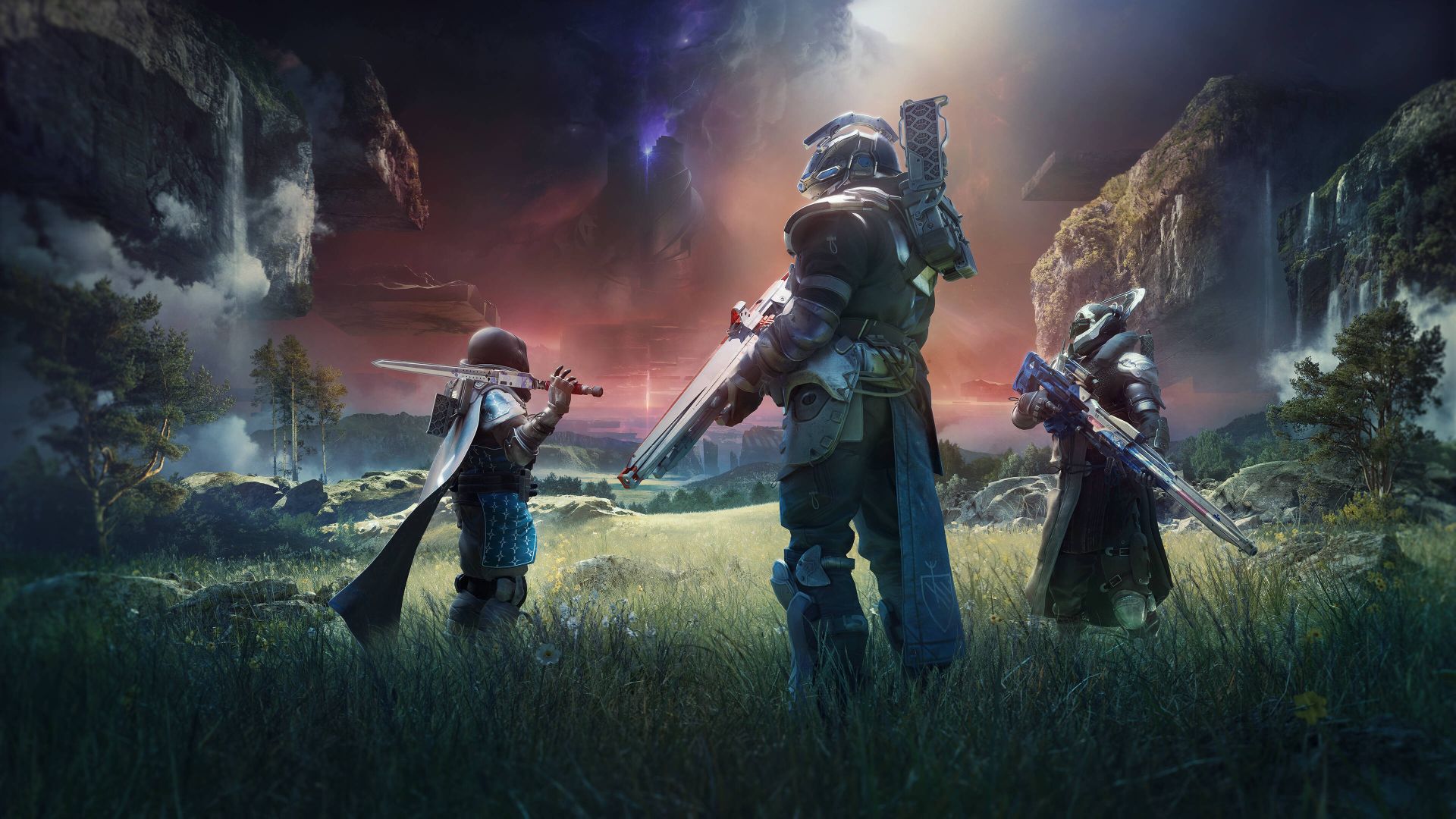
To say that Destiny 2 fans had a harrowing sense of finality with The Final Shape would be an understatement (and not because of the name). The expansion concludes the Light and Darkness saga, acting as the final battle against the big bad, The Witness. It’s a culmination of a ten-year journey fraught with as many memorable deaths and occurrences as there have been terrible dialogues and questionable expansions. For many, this was to be their dropping-off point – where they would finally take a break from the franchise and move on, maybe to return, maybe not.
While that’s certainly the case for some long-time players, Destiny 2: The Final Shape doesn’t just feel like an expertly crafted grand finale or a culmination of the player’s journey thus far. It’s a celebration; a narrative symphony, where so many dissonant character threads are finally in harmony, and a font to ponder new directions for the franchise. On top of all this, it does what Bungie needs – to generate excitement, anticipation and hope for the franchise’s future, something that seemed impossible after the disastrous Lightfall.
“It’s not long before you’re face to face with the new faction serving The Witness – The Dread. Capable of wielding Stasis and Strand to freeze and pull when the Subjugators aren’t detonating crystals or suspending you for some free damage.”
From the get-go, the situation is treated with the emotional weight it deserves. That first entry through the portal carved by The Witness into The Traveler, as you venture across multi-shaped platforms, tearing through all kinds of enemies, is desperate. The Awoken Queen Mara Sov provides some assistance, but the Vanguard, who also ventured inside, has lost communication and the status of Crow, who helps maintain the entry, is unknown. For one of those rare times, you hear vulnerability in Mara’s voice – even the very symbol of regality has no clue what could happen next.
Then silence, followed by guidance into a land of green.
“It’s beautiful, and so familiar,” remarks the Ghost, your only companion, fittingly so, in this initial traipse into the Pale Heart of the Traveler. Old memories begin to swell, even as massive fixtures of the former dot a portion of the landscape and other shapes loom in the distance. Though a triumphant horn can be heard faintly in the background, the percussion continues to rumble, symbolizing potential danger around every corner. Say it once about Bungie’s art and music teams, but they’re some of the best in the industry, and The Final Shape is nothing short of top-tier.
You happen upon the old Tower, including the Vanguard’s command table. It’s here you gain access to Prismatic, the newish sub-class that combines Light and Darkness. Even this feels like a big deal because it’s exclusively yours – none of the other Guardians (at least, in your narrative instance) can do so. You are the tip of the spear when it counts.
It’s not long before you’re face to face with the new faction serving The Witness – The Dread. Capable of wielding Stasis and Strand to freeze and pull when the Subjugators aren’t detonating crystals or suspending you for some free damage. It’s hectic, especially on Legendary, and even with Prismatic, reflective of how outgunned you are. Of course, it’s not long before Cayde-6 makes his appearance, with Nathan Fillion returning to voice the character, and you embark on a journey to find Ikora and Zavala.
“Outside of the well-written dialogue, which balances levity with seriousness throughout, even with Cadye front and center, the campaign is exceptional.”
I won’t go into further details since the story is worth experiencing beforehand, but as much as stopping The Witness is a priority, so too are the various emotional trials that the Vanguard must surmount. Cayde struggles with being alive while Crow continues to repent for what he’s done (while hiding an important detail in the former’s resurrection).
Zavala doesn’t know what to think after being so close to The Traveler and still not receiving a reply, as Darkness slowly reaches out. Meanwhile, Ikora struggles to keep the team cohesive, fighting against despair. There’s happiness and anger at being reunited, and it’s the antithesis of the old fireteam coming together during The Red War. Nevertheless, their conflicts give rise to hard-hitting questions about purpose, faith, devotion and the meaning behind sacrifice
Outside of the well-written dialogue, which balances levity with seriousness throughout, even with Cadye front and center, the campaign is exceptional. After the bombshell of an opening mission, you slowly venture through the Traveler, revisiting locations from your memories…except reshaped and influenced by others within the Pale Heart.
Corruption slowly manifests as the ever-burgeoning hands of The Witness come forth, twisting the very landscape into unnatural shapes. You’ll venture through hazardous sandstorms that slow your movement. Solve Hive glyphs, alternating Light and Darkness, to pave the way forward. Slay lots of enemies, including those only vulnerable to damage when you’re in a Prismatic state.
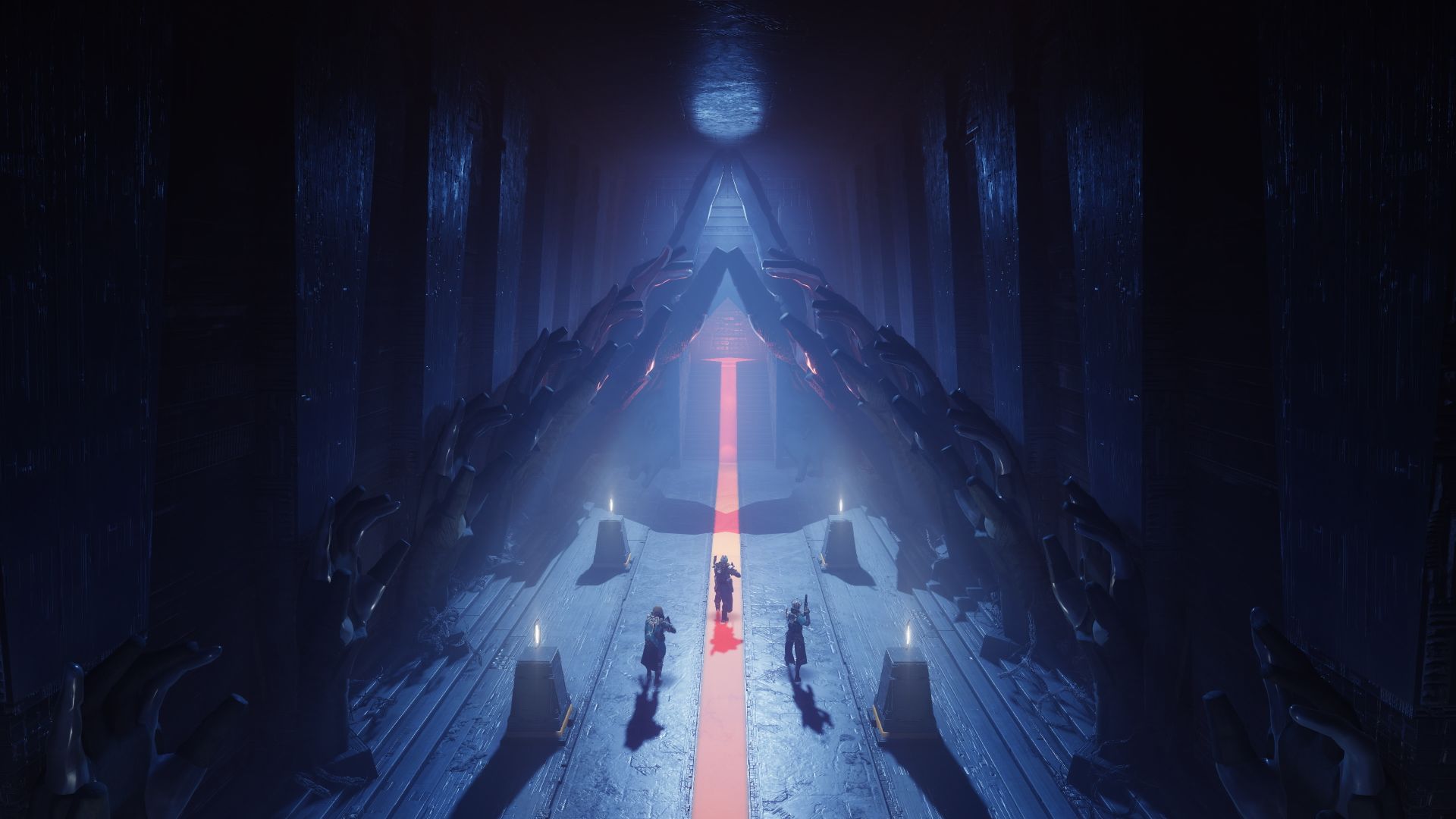
“Prismatic, without question, is one of the most liberating parts of the expansion. It allows mixing Aspects, Fragments, grenades, class abilities and Supers into one sub-class.”
Some mechanics will feel familiar to players, but the campaign thankfully adds some extra twists to freshen things up. Though there was a bit of skepticism to see Lost Sectors and the Strike tied into the campaign, they capably advance the narrative and introduce some unexpected and compelling new characters.
Liminality also serves to shine some extra light on The Witness’s backstory while featuring some interesting platforming sections. As for the final encounter, it’s a spectacle, micromanagement-fest and desperate fight for survival all wrapped into one. It’s one of the best campaign bosses in the series, especially with how it sets up the raid.
Prismatic, without question, is one of the most liberating parts of the expansion. It allows mixing Aspects, Fragments, grenades, class abilities and Supers into one sub-class. You can have multiple buffs like Radiant, Devour and Amplified active at the same time while adding in some Woven Mail for damage reduction. You can toss a Storm Grenade to quickly Jolt targets or toss out some Arcane Needles before activating the new Light-based Supers (Song of Flame, in my case) to grant Radiant to allies and shower the enemy in new tracking grenades. Helion, the new Aspect, is especially great since it can lob Solar mortars.
Playing as a Warlock eventually meant embracing the meta Getaway Artist + Bleak Watcher turret set-up, but even that has some interesting nuances. I can forego Devour for Helion and instead rely on melee kills to start health regeneration. Consuming a grenade also grants Amplified, which provides damage reduction with the Artifact perk. There are other builds – Mataidoxia helped bring some Suspend into the mix via Arcane Needles, and I’ve seen other players succeeding with Threadling builds. It’s all very new, which is a good thing, seeing as the various Acts of Episodes will present new weapons and apparently new Artifact perks.
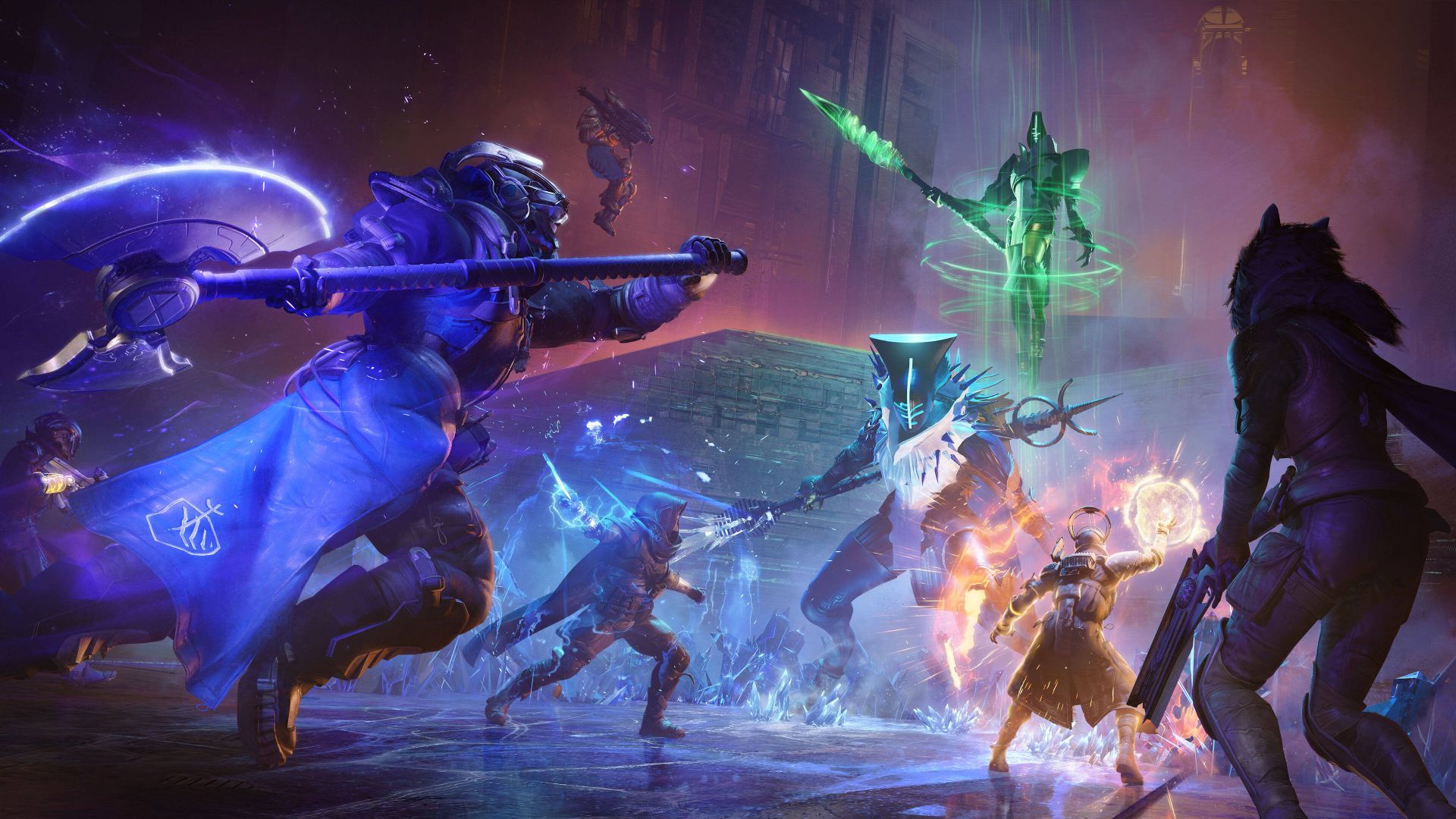
“The Pale Heart offers a new activity, Overthrow, where everything you do – from opening chests and collecting resources to slaying enemies – contributes to increasing the threat level, ending with a final boss and rewards.”
As enjoyable as the campaign is, the additional quests and “Patrol” is arguably more so. The Pale Heart opens up for exploration, as you venture to locations to help cleanse the Traveler of The Witness’s Blight, take down enemy factions or even balance Light and Dark points of interest. Each encounter feels innocuous at first but quickly blossoms into a mini-boss fight or unique mechanics, whether you’re tossing grenades to clear Blight balls, finding the right vantage points to kill certain enemies or reflecting projectiles with a sword to clear objectives.
New quests see players interacting with Savathun, Caiatl and Mithrax, their backstories intertwining with Mara, Zavala and Ikora, respectively. Micah-10 of the Six Coyotes is also a welcome presence, providing comms support, guiding you to Lost Ghosts and bestowing new weapons as rewards. With missions to revisit memories and unlock new Prismatic abilities, Exotic quests (including a poignant stakeout mission with Cayde and Crow), and even new co-op-focused versions of campaign missions with new mechanics that require lots of coordination, there’s a lot to keep you busy.
It also helps that the rewards are worthwhile, from The Call, an incredible new Rocket Sidearm, to Pro Memoria, a new Strand LMG. There’s also the new Exotic Sword, which can roll with random Exotic perks. Have you ever had a sword initiate Pack Hunter and fire off Wolfpack Rounds with each swing? How about Riskrunner’s perk for Arc damage reduction? It’s all here, mixed with different frames, whether you favor long-distance casting or heavy swings.
The new Pathfinder also comes into play after the campaign, unifying bounties across the board. It’s a great concept, as you can choose a path leading to the reward in question by completing your preferred tasks but also mop up the others for more XP. Furthermore, you can reset this as many times as you’d like and keep grinding away. The Pale Heart offers a new activity, Overthrow, where everything you do – from opening chests and collecting resources to slaying enemies – contributes to increasing the threat level, ending with a final boss and rewards.
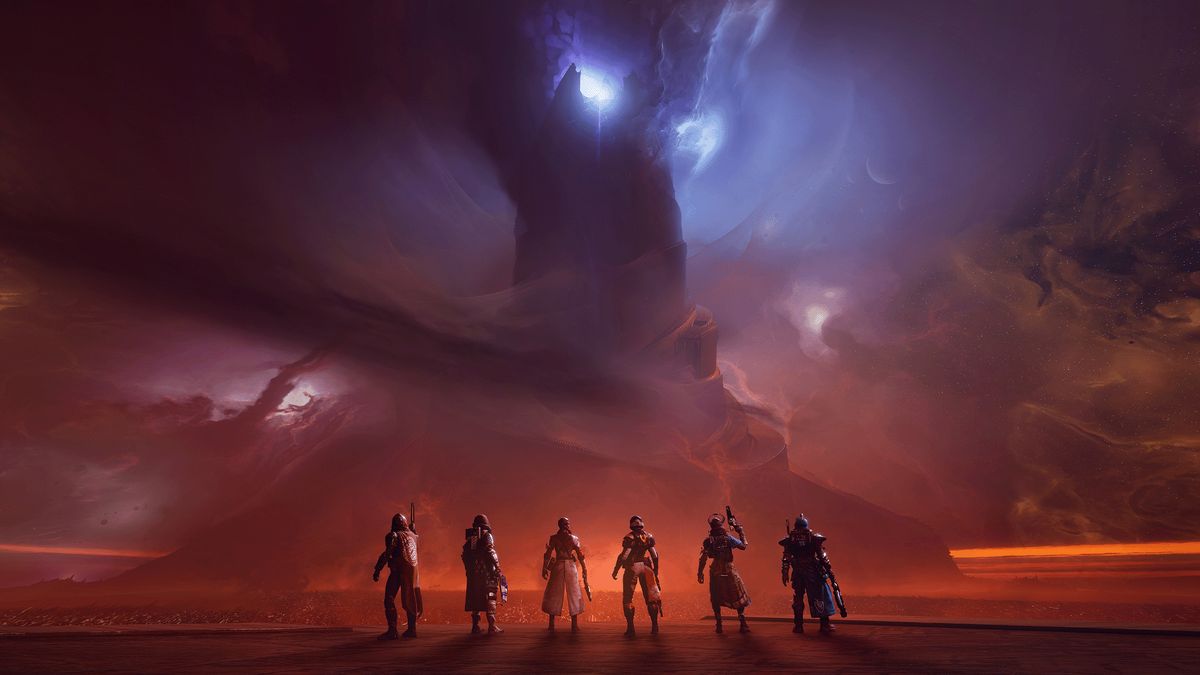
“It feels like Power is more of a representation of time invested, with each activity having its own quirks and difficulties regardless of Power levels.”
Then there’s the raid, Salvation’s Edge. I only managed to complete the first encounter, which took a couple of encounters, but it’s everything that made me really get into raiding during the Destiny 1 days. Mechanically dense; easy to execute but requiring time and proper coordination to truly master; and plenty of enemy-slaying. The overall level design and aesthetics are also top-tier, making this one of the best raids in the franchise to date.
This ties into Pathfinder’s tasks and provides a natural feedback loop of activities, XP and rewards. I’m somewhat skeptical about it for the Ritual Activities playlist, though. Completing Vanguard playlists and whatnot is fine, but it makes certain activities like Gambit (still a trash fire. Hardly news, I know) compulsory. Hopefully, there are some reworks in that regard. The other concern is that three players feel too low for matchmade Overthrow, plus the activity’s nature results in less coordination for specific tasks, given their relatively low difficulty, and more of everyone doing their own thing before reconvening at the boss. Maybe that’s the intention. Nevertheless, the current player count feels too low with such a massive space to play around in.
The Final Shape does have some polish issues here and there, with some quest steps failing to start and requiring a restart. There’s currently an issue in the Khvostov quest chain where you can lose all the Motes of Light necessary to make it Exotic by killing a specific boss too late. The overall polish of the expansion is strong, but it’s not perfect. There’s also some concern over increasing your Power. Activities have difficulties and Power caps, and some only require you to be 1945, which is easily achievable.
It feels like Power is more of a representation of time invested, with each activity having its own quirks and difficulties regardless of Power levels. Grandmaster Nightfalls and Legendary Onslaught are still out of reach for most solo players unless they’re incredibly skilled. However, this doesn’t make the 2000 Power co-op-focused campaign missions on the same level of difficulty, especially since the highest Power player in a lobby can boost everyone else to up to five levels below them. It still feels like Bungie has some issues to iron out in this area of the game, especially after its experiments with Power and not constantly raising the caps last year.
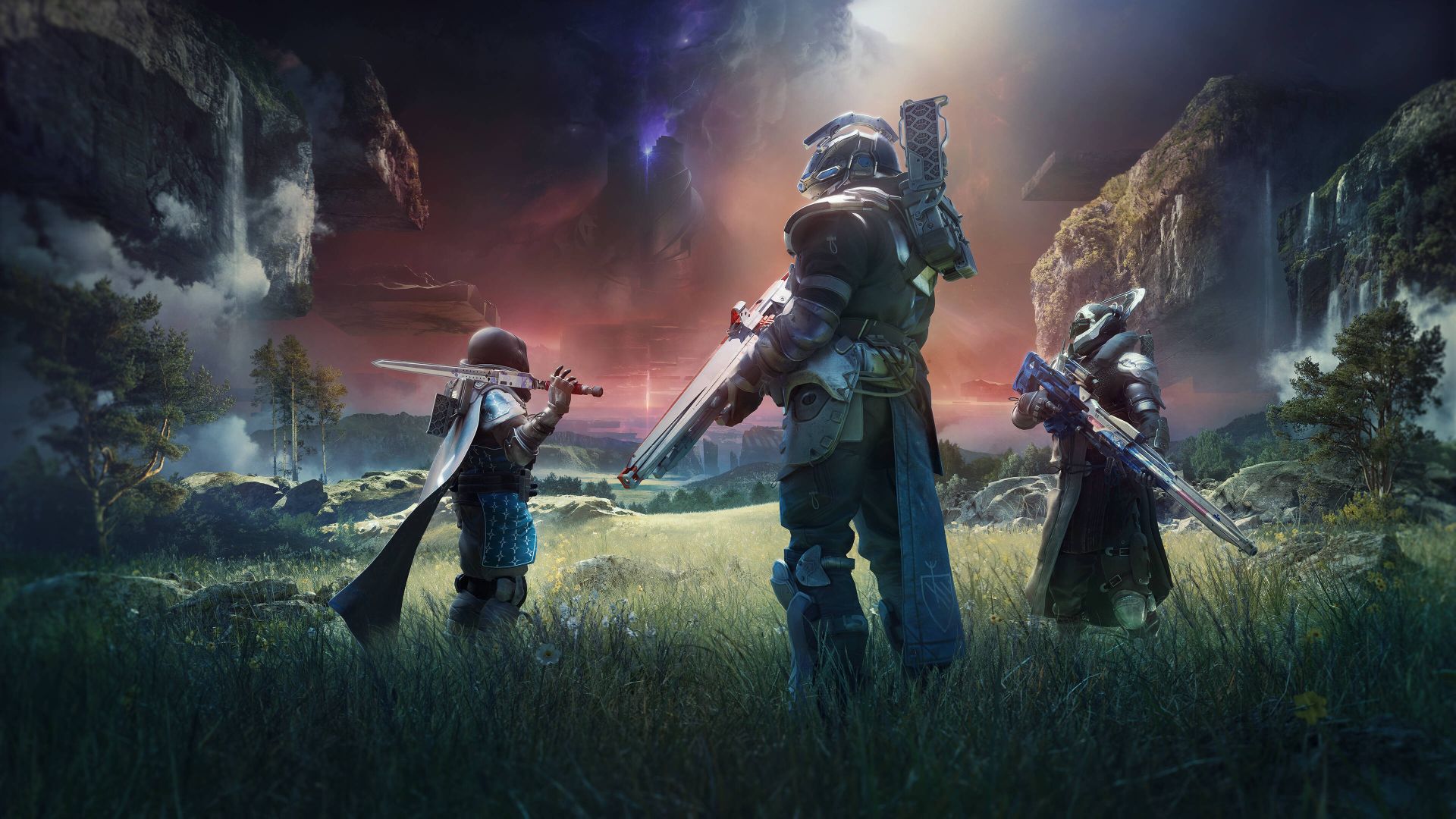
“However, if this expansion has proven anything, it’s the significance of reaching this point, on your own terms, creating countless memories along the way. If Bungie continues to deliver on that feeling, then Destiny 2’s future looks bright indeed.”
Even with these issues, Destiny 2: The Final Shape is the series at its peak. The campaign is a worthy journey, especially for long-time players, with its character interactions and stakes, but also stands on its own with compelling mechanics and mission design. The new activities are fun to engage with, and even Overthrow can wear on you over time, it still feels like a more organic way to farm XP in conjunction with Pathfinder than regular bounties would. The raid is challenging and presents many areas requiring practice and mastery while providing plenty of high-octane action and epic moments. The final mission that opens up is just the cherry on top of everything that makes this expansion so great.
The post-credits scene of The Final Shape probably encapsulates the experience best. The universe isn’t completely safe yet – in fact, there’s more uncertainty than ever, especially as new powers arise in other parts of the universe like Nessus (which is where Episode 1: Echoes kicks off). Hostile forces remain in the Pale Heart of the Traveler. Sure, it’s meant to explain why you’re still grinding Overthrow or encountering enemies even after everything that’s happened, but the logic is sound.
However, in that moment, it’s just you and your Ghost sitting and watching the Traveler from a distance. The source of constant mystery, intrigue and countless battles, serving as a hypnotic sight to admire and ponder. You may never truly learn everything about it, but one thing is for sure: This isn’t the end, not for your Guardian or the Vanguard. Where your journey takes you next is a big question. However, if this expansion has proven anything, it’s the significance of reaching this point, on your own terms, creating countless memories along the way. If Bungie continues to deliver on that feeling, then Destiny 2’s future looks bright indeed.
This game was reviewed on PC.